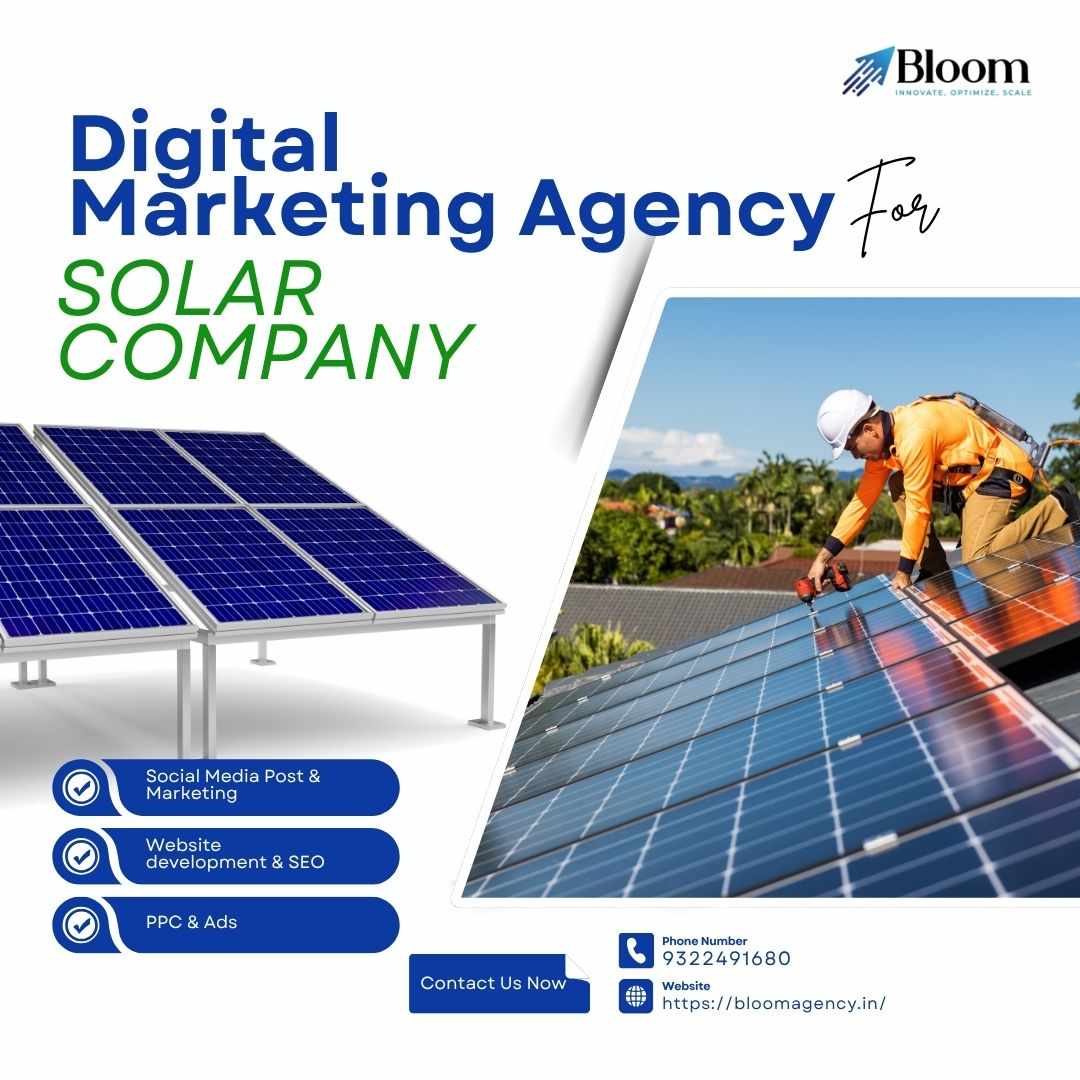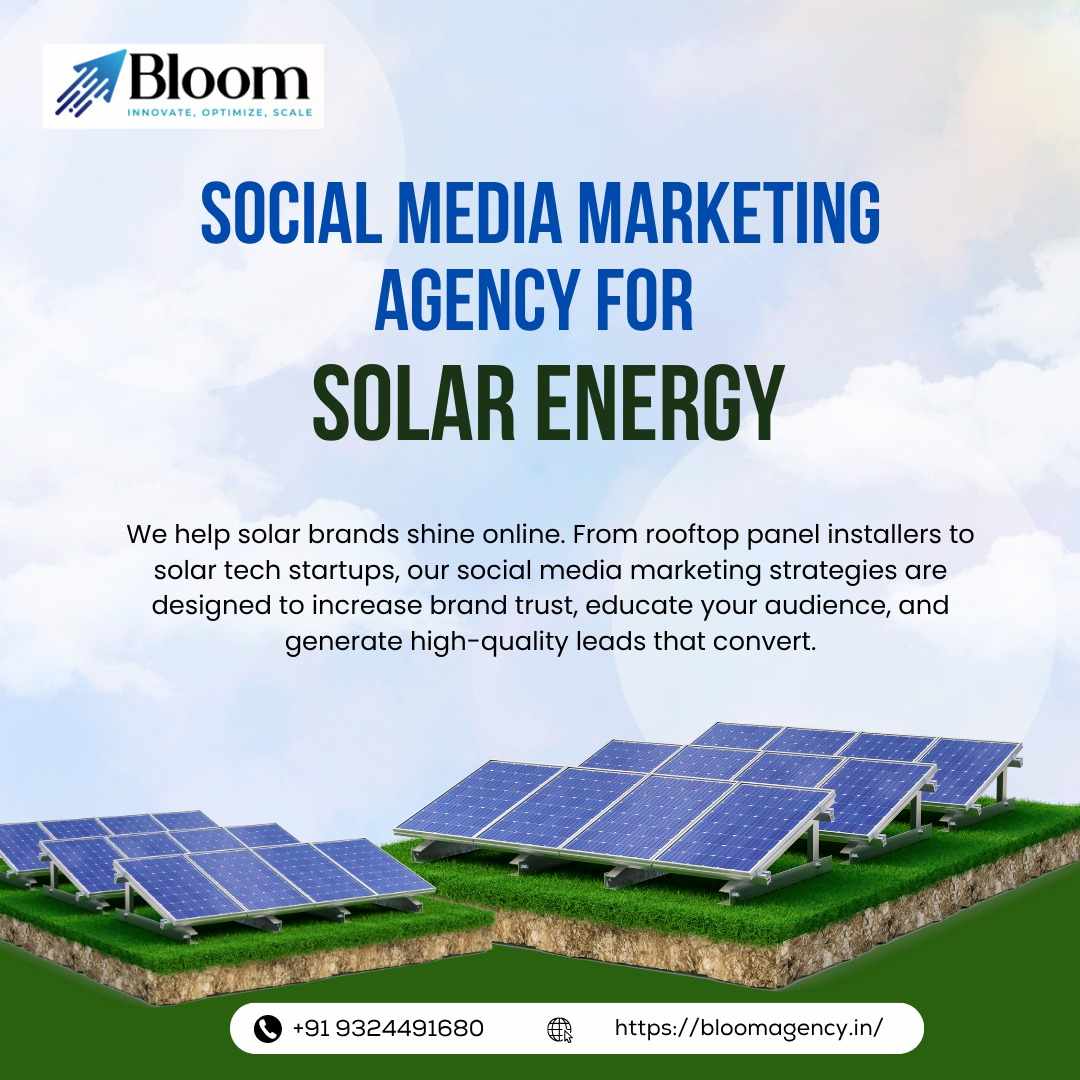
Understanding Solar Marketing Agencies: Driving the Growth of Solar Energy
The global shift toward renewable energy sources has placed the solar industry at the forefront of sustainable development. As solar power gains popularity among homeowners, businesses, and governments, the need to effectively promote solar solutions has become critical. This is where solar marketing agencies play an essential role. But what exactly is a solar marketing agency, and how does it contribute to the growth of solar energy adoption? This article explores the function, strategies, and significance of solar marketing agencies in today’s energy landscape.
What Is a Solar Marketing Agency?
A solar marketing agency is a specialized firm that focuses on promoting solar energy products and services. Unlike traditional marketing companies, these agencies understand the nuances of the solar industry, including technological trends, customer profiles, government policies, and environmental factors.
Their primary objective is to connect solar companies with potential customers through targeted communication and outreach efforts. By highlighting the benefits of solar power and addressing common concerns, solar marketing agencies help drive awareness, generate leads, and ultimately contribute to the adoption of clean energy.
Why Solar Marketing Requires Specialized Agencies
Marketing solar products and services is not the same as marketing consumer goods or typical B2B services. The solar industry has distinct challenges and opportunities:
1. Technical Complexity
Solar power systems involve technical components like photovoltaic panels, inverters, battery storage, and installation processes. Potential customers may not fully understand these technical details, which can create hesitation or confusion.
Solar marketing agencies use clear, educational messaging to simplify complex concepts, making it easier for customers to make informed decisions.
2. Regulatory Environment
Solar energy is often affected by local, state, and federal regulations, including subsidies, tax incentives, net metering policies, and renewable energy certificates. A solar marketing agency stays updated on these policies to provide accurate information and position offers accordingly.
3. Long Sales Cycle
Solar purchases typically involve higher investments and longer decision-making periods compared to many consumer products. Marketing strategies must nurture leads over time with relevant content and consistent engagement.
4. Diverse Customer Segments
Solar customers range from residential homeowners to commercial enterprises and government bodies. Each segment has unique motivations, financial considerations, and concerns. Effective marketing requires segmentation and personalization.
Core Functions of a Solar Marketing Agency
A solar marketing agency typically offers a suite of services that collectively support a solar company’s sales and growth objectives. Here are some of the fundamental functions:
1. Market Research and Audience Segmentation
Understanding the target market is crucial. Agencies conduct market research to identify key customer segments, such as environmentally conscious homeowners, businesses seeking energy cost savings, or public institutions aiming for sustainability goals.
This segmentation enables tailored messaging and offers that resonate with each audience.
2. Brand Positioning and Messaging
A solar marketing agency helps solar companies define their unique value propositions. This includes crafting messages that emphasize benefits such as:
Reduced electricity bills
Energy independence
Environmental impact
Government incentives
Clear, consistent messaging helps build trust and brand recognition.
3. Lead Generation and Nurturing
Generating qualified leads is a major focus. Agencies use multiple channels including:
SEO (Search Engine Optimization) to attract organic traffic
Paid advertising (Google Ads, social media ads)
Content marketing (blogs, whitepapers, videos)
Email campaigns
Leads are then nurtured with targeted content that educates and guides them through the purchase journey.
4. Digital Marketing
Digital channels are especially effective for solar marketing, given their ability to target specific demographics and measure results. Agencies optimize websites, manage social media profiles, and run online campaigns designed to engage potential customers.
5. Local and Community Marketing
Since solar installations are often location-specific, local marketing efforts are important. Agencies might coordinate community events, partner with local organizations, or engage in geo-targeted advertising to reach audiences in specific areas.
6. Customer Education
Educational content is vital in overcoming skepticism and misinformation about solar technology. Agencies create blogs, FAQs, explainer videos, webinars, and case studies to inform customers about the installation process, cost-benefit analysis, maintenance, and environmental impact.
Marketing Strategies Used by Solar Marketing Agencies
Solar marketing agencies employ a mix of traditional and digital strategies to reach and engage their target audience.
1. Content Marketing
By providing valuable information through articles, videos, and guides, agencies position solar companies as trustworthy experts. This approach not only attracts visitors but also builds credibility.
2. Search Engine Optimization (SEO)
SEO ensures that solar companies appear prominently when customers search for relevant keywords like "solar panel installation near me" or "solar energy benefits." This organic visibility drives cost-effective traffic.
3. Pay-Per-Click (PPC) Advertising
PPC campaigns, such as Google Ads and Facebook Ads, allow agencies to target specific geographic regions, interests, and demographics. This approach generates immediate traffic and leads.
4. Social Media Engagement
Platforms like Facebook, Instagram, LinkedIn, and Twitter are used to share updates, answer questions, and highlight success stories. Social media also supports influencer partnerships to reach wider audiences.
5. Email Marketing
Agencies create drip email campaigns to nurture leads over weeks or months, delivering tailored information that addresses customers’ questions and objections.
6. Event Marketing
Participation in trade shows, community workshops, and webinars allows direct interaction with interested prospects. Solar marketing agencies often coordinate these events.
The Role of Technology in Solar Marketing
Technology plays a critical role in modern solar marketing, enabling automation, personalization, and data-driven decision-making.
Customer Relationship Management (CRM) Systems track leads, interactions, and sales pipelines.
Marketing Automation Tools schedule emails, social media posts, and ad campaigns.
Analytics Platforms measure campaign performance and customer behavior.
Geotargeting and Retargeting Technologies deliver relevant ads to users based on location and browsing history.
Solar marketing agencies leverage these technologies to optimize outreach and maximize results.
Measuring Success: Key Performance Indicators (KPIs)
To evaluate the effectiveness of solar marketing efforts, agencies track several KPIs, including:
Website Traffic: Number of visitors and their behavior.
Lead Volume: Quantity and quality of inquiries.
Conversion Rate: Percentage of leads turning into customers.
Cost Per Lead: Efficiency of marketing spend.
Customer Acquisition Cost (CAC): Total marketing cost divided by customers acquired.
Return on Investment (ROI): Overall profitability of marketing activities.
Regular reporting and analysis allow agencies and clients to refine strategies continuously.
Challenges Faced by Solar Marketing Agencies
Despite the growing demand for solar energy, marketing agencies encounter challenges such as:
Consumer Skepticism: Concerns about installation costs, payback periods, and product reliability.
Regulatory Changes: Frequent updates in policies can impact incentives and customer decisions.
Competition: Increasing numbers of solar providers mean agencies must find ways to differentiate their clients.
Educating a Diverse Audience: Tailoring messages for varying customer knowledge and motivations.
Future Trends in Solar Marketing
The solar industry and its marketing landscape continue to evolve. Key trends include:
Increased Use of AI and Machine Learning: For predictive analytics, customer segmentation, and personalized communication.
Integration with Smart Home Technology Marketing: Positioning solar solutions as part of broader smart home ecosystems.
Sustainability Branding: Emphasizing environmental benefits to appeal to eco-conscious consumers.
Virtual and Augmented Reality: Helping customers visualize solar installations on their properties.
Blockchain for Energy Trading: Marketing new models of decentralized energy generation and trading.
Conclusion
Solar marketing agencies serve as vital bridges between solar companies and customers, simplifying complex technologies, navigating regulatory landscapes, and fostering trust. Their specialized knowledge and strategic approach enable the solar industry to expand its reach and accelerate adoption.
As the demand for clean, renewable energy grows, so does the importance of effective marketing tailored to the unique characteristics of solar power. Understanding the role of solar marketing Agency sheds light on how the solar revolution is not only powered by technology but also by smart communication and outreach.




















Write a comment ...